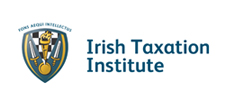G20 ready to act together to stabilise markets
European stocks rebounded this morning and the euro strengthened while Spanish and Italian bonds advanced as the European Central Bank began buying the countries’ debt.
Most European shares had begun the day in negative territory with London and Frankfurt both down 1 per cent in opening trade.
However, the FTSE 100 climbed 18.02, or 0.3 per cent, to 5,265.01 at 8.32am, the first gains in seven days while German stocks also rose, with the benchmark DAX Index climbing 0.5 per cent to 6,266.33. The Dublin market was up by1.3 per cent to 2,537.69.
The benchmark Stoxx Europe 600 Index rallied 0.5 per cent to 240.04 at 8:25 am, recouping losses of as much as 1.4 per cent.
The yield on 10-year Italian bonds fell 71 basis points to 5.39 per cent this morning. That narrowed the difference in yield, or spread, to similar-maturity German debt by 86 basis points to 288 basis points. Spanish 10-year yields slid 75 basis points to 5.30 per cent.
Gold nonetheless soared to a new record above $1,700 an ounce on safe-haven buying and the dollar weakened against a basket of major currencies. Major Asian equity markets fell by between 2 per cent and 5 per cent.
Fears that the US may be sliding back into recession, worries about a downgrade of America’s prized AAA rating and Europe’s debt woes combined to pummel financial markets last week in one of the worst routs since the dark days following the collapse of Lehman Brothers in 2008. Ratings agency Standard & Poor’s cut the US long-term rating by one notch from AAA on Friday, capping a week that saw $2.5 trillion wiped off companies’ values amid worries the US economy was stalling.
Tokyo’s Nikkei closed down 2.2 per cent and MSCI’s broadest index of Asia Pacific shares outside Japan fell 4.2 per cent, taking its losses for the month so far to more than 12 per cent.
Hong Kong’s Hang Seng fell around 4 per cent and Singapore’s Straits Times Index lost nearly 5 per cent . South Korea’s KOSPI tumbled as much as 7.3 per cent, prompting the stock exchange operator to briefly suspend programme trading, before closing down 3.8 per cent .
While the loss of the prized AAA credit rating the United States has held with S&P since 1941 was a huge symbolic blow, the crisis in the euro zone has presented an even bigger immediate concern for investors.
Yields on Italian and Spanish debt soared to 14-year highs last week on political wrangling and doubts over the vigour of budget cuts, raising fears that the euro zone’s bailout fund for struggling members could be overwhelmed.
In a statement last night, the ECB said it welcomed announcements by Spain and Italy – countries now at the centre of the debt crisis – on new fiscal and structural policy measures, and it urged both governments to roll them out swiftly.
The Frankfurt-based central bank added that it “will actively implement its Securities Markets Programme.”
“This programme has been designed to help restore a better transmission of our monetary policy decisions – taking account of dysfunctional market segments – and therefore to ensure price stability in the euro area”.
Fears the global economy is headed for a “double-dip” recession sparked frantic efforts to find agreement on the best way to prevent Spain and Italy from becoming the next victims of the euro debt crisis.
As the emergency talks took place, German chancellor Angela Merkel and French president Nicolas Sarkozy issued a joint statement, pressuring the ECB to buy Italian and Spanish bonds to ease the worsening financial turmoil.
They called on their parliaments to approve by the end of September the July 21st agreement to strengthen the EU bailout fund.
Taoiseach Enda Kenny and Minister for Finance Michael Noonan have been monitoring developments in the markets and are maintaining contact with their officials as the crisis continues to unfold.
Source Irish Times Additional reporting: Reuters





Leave A Comment